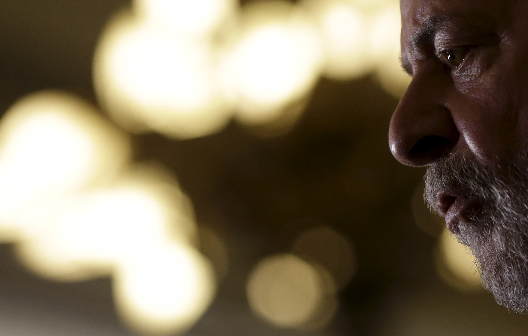 On January 25, 2018, less than twenty-four hours after Brazil’s Fourth Regional Court of Porto Alegre voted 3-0 to uphold former President Luiz Inácio Lula da Silva’s conviction for corruption and money laundering, the Atlantic Council’s Adrienne Arsht Latin American Center hosted a conference call to discuss the political and economic implications for Brazil and across the hemisphere. The historic decision, coupled with the extension of his sentence from nine and a half to twelve years and one month, throws a wrench into Lula’s his political aspirations, and makes probable the former president’s incarceration. It adds an additional layer of complexity into one of the most important elections in recent decades. Lula, for his part, has refused to withdraw his candidacy and has vowed to continue contesting the court’s decision.
On January 25, 2018, less than twenty-four hours after Brazil’s Fourth Regional Court of Porto Alegre voted 3-0 to uphold former President Luiz Inácio Lula da Silva’s conviction for corruption and money laundering, the Atlantic Council’s Adrienne Arsht Latin American Center hosted a conference call to discuss the political and economic implications for Brazil and across the hemisphere. The historic decision, coupled with the extension of his sentence from nine and a half to twelve years and one month, throws a wrench into Lula’s his political aspirations, and makes probable the former president’s incarceration. It adds an additional layer of complexity into one of the most important elections in recent decades. Lula, for his part, has refused to withdraw his candidacy and has vowed to continue contesting the court’s decision.
Jason Marczak, director of the Adrienne Arsht Latin America Center, began the conversation by introducing Joseph Leahy, Brazil bureau chief for the Financial Times; Lisa Schineller, managing director for sovereign analysis in the Americas at S&P; and Marcos Troyjo, co-director of the BRICs Lab at Columbia University.
Mr. Leahy outlined reactions on the ground. “There are still a number of variables that are uncertain, and in fact this decision creates a lot of uncertainty around an election that is one of the most unpredictable in recent history.” He noted the decision will likely mean larger partisan fragmentation, making it harder for a stronger governing coalition to form in October. Mr. Troyjo noted Lula will have a difficult time appointing an electorally viable successor. “The populists share of Lula’s personality will end up being absorbed by other candidates, some that are to be found on the other side of the spectrum, including by Jair Bolsonaro” he suggested.
From the market side, Lisa Schineller questioned the significance of the market’s short-term reaction to the decision, and argued that it is too early to make an adequate estimation on the market’s prospects over the medium-term. In the nearer term, Ms. Schineller expects “a little above 2 percent [GDP growth] when considering the current monetary policy easing, but because of the uncertainty we are not at the higher end of the spectrum.”
She noted that although the market continues to pull itself up from a debilitating recession, “it will be progress on turning around the fiscal deterioration and whether or not you continue to advance with the strong microeconomic agenda that is put in place that will determine at the end of the day market outcomes and the growth trajectory.”
The panelists noted the decision highlights the country’s strengthening institutions, with Mr. Troyjo taking notice of how this continues to strengthen Brazil’s image and soft power abroad. In regard to domestic perceptions, he emphasized that although an opinion divide does exist, it is “by no means fifty-fifty,” and that “a majority of Brazilians are happy with the way institutions [the judicial system and the federal police] have proceeded.”
The economic benefits of Brazil’s institutional strengths, however, might be overshadowed by the political incapacity to pass meaningful reform. As an example, Ms. Schineller explained S&P’s recent downgrading of Brazil’s credit rating as being caused “by the slowness of policy making, slowness in following through on fiscal policy legislation, given order of magnitude of fiscal burden.”
Turning the conversation to the future, the panelists weighed in on what comes next. The consensus was one of uncertainty around how Lula will handle the process of appeals; around the prospect of a divisive election; and about the ability of a new administration to form a coalition broad enough to pass the deep fiscal reforms Brazil needs for sustainable growth. Without a doubt, the next year will be one of crucial importance for Latin America’s biggest economy and largest democracy.
